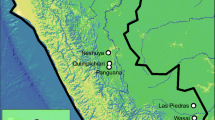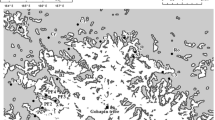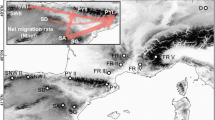Abstract.
Evolution of sociality has instigated many changes in the biology of social insects. Particularly, evolution towards complex social systems in ants affects how individuals move in space, usually by making females philopatric. Proformica longisetais well-suited for studying the effects of female philopatry, because female sexuals are wingless and do not actively disperse. We studied genetic population structure in P. longiseta in local scale both as genetic viscosity within one subpopulation, and as differentiation between closely (0.1–1.5 km) located subpopulations, by using nuclear (microsatellites) and mitochondrial (SSCP) markers. Dependent colony founding by splitting old nests is the only known nest founding strategy in P. longiseta. However, no genetic viscosity was detected at the nuclear markers within the subpopulation studied, possibly due to the dynamic nature of P. longiseta populations. The extreme female philopatry showed as strong structure between closely located subpopulations in the mitochondrial genome, but there was no isolation by distance showing that the differentiation pattern was random. Genetic structure in the nuclear genome was much weaker, and there was an indication of isolation by distance. This suggests that male dispersal is strong but not totally free across the area. Finally, non-dispersing P. longiseta females necessarily mate locally raising the possibility of inbreeding, but inbreeding coefficients showed that mating is random.
Similar content being viewed by others
Author information
Authors and Affiliations
Corresponding author
Additional information
Received 10 January 2006; revised 13 April 2006; accepted 20 April 2006.
Rights and permissions
About this article
Cite this article
Seppä, P., Fernández-Escudero, I., Gyllenstrand, N. et al. Obligatory female philopatry affects genetic population structure in the ant Proformica longiseta. Insect. Soc. 53, 362–368 (2006). https://doi.org/10.1007/s00040-006-0882-9
Issue Date:
DOI: https://doi.org/10.1007/s00040-006-0882-9




